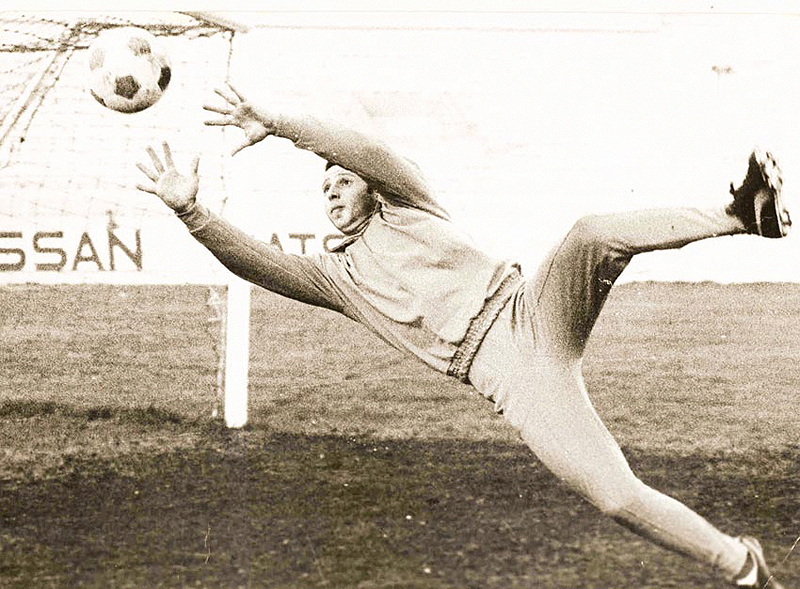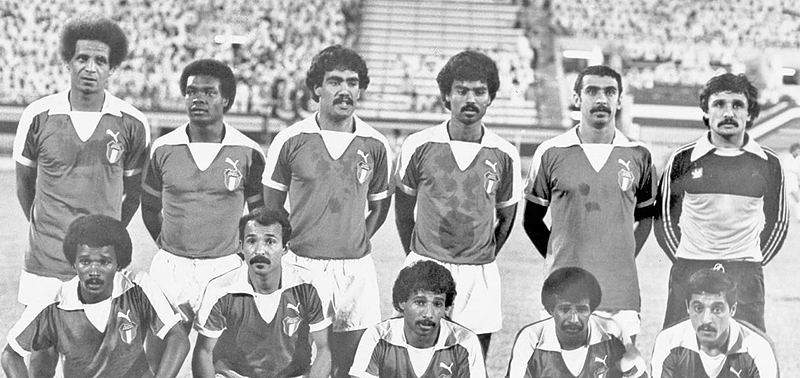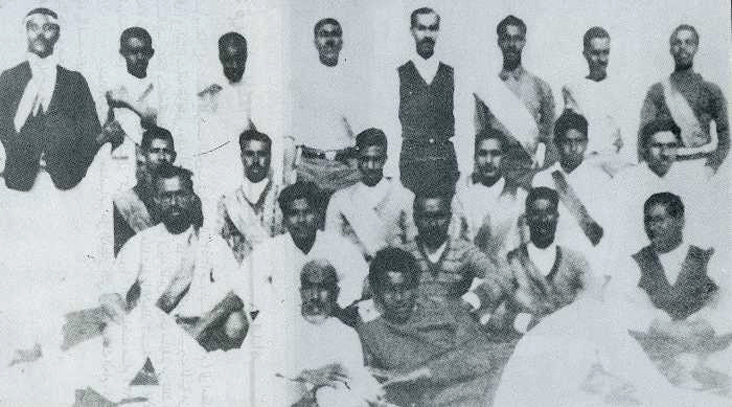
KUWAIT: Since the olden times, the people of Kuwait have been involved in sports activities like horseback riding, swimming, and running in addition to traditional children's games as Al-Muqsi, Al-Houl, and Atheem Sari, which were kept alive until the educational resurgence began. The emergence and growth of the public schools in Kuwait started leading to the initial movement of modern sports especially football along with the educational scholarships influencing the substitution of traditional games for these sports.

According to the book 'The Letter of Kuwait' Volume III issued by the Center for Research and Studies of Kuwait, football was not practiced based on its rules and regulations before 1932, but those who played it used primitive balls of straw or old clothes without any knowledge of the guidelines of the sport. The book also mentions the man credited to introducing this sport to Kuwait, Fahad Salem Al-Sdayrawy after returning from India where he was visiting his older brother Mohammed, one of the top traders at the time.

During his time there, Fahad came across a group comprised of local Indians and Brits playing football with very high spirits and chanting, and Fahad immediately thought he must tell his friends about this. Upon his return to Kuwait Al-Sdayrawy initiated, the first football team organized based on the official rules and regulations of the game and competition took off in 1932. Nearing the end of the 1940s, Kuwait experienced its educational and economic boom accompanied by the oil era, greatly affecting the sports movement in the country through trade union organizations that laid the foundations for organized sports movement in Kuwait and helped establish many sports clubs.
The book also noted that Al-Ahli sports club is one of the first club to be established in 1949, with its location being in Al-Qibla at the Al-Hamad Diwaniya, as the idea to initiate this club was thought of by Mjirin Al-Hamad and its first president as Sheikh Abdullah Al-Mubarak Al-Sabah. In the same year, the Arabi Gulf Club was also established in Dasman and Sheikh Jaber Al-Abdullah Al-Jaber Al-Sabah was assigned as its head. Moreover, in the same year in Sharq (near the Amiri hospital), the Sports Cooperation Club was founded.

In the early 1950s, more and more clubs began to emerge like Al-Sharq Club (1954), Al-Orouba Club (1951), and Al-Murqab Club (1954) solidifying the initial sports movement in Kuwait. The first football league including the clubs as the book revealed took off in December of 1951, and the season witnessed the participation of six clubs with Al-Maaref Club crowned as the first champions in February 1952.After the foundation was set for these sports clubs, a place for a federation to unify them became evident in order to better serve this sport domestically and internationally and so Essa Al-Hamad, Kuwait's Sports Supervisor introduced the idea in 1952.The Kuwait Sports Federation name came to be in that same year after Al-Hamad and those interested and concerned in sports met and decided to give football a priority over other sports like volleyball and basketball.
Following the establishment came the enactment of the Federation's general law and the rules and regulations of Kuwait's Football Federation were set. The formation of these laws was trailed by the organizations first initial acts to begin a general competition for football in the country and officially invite the local clubs to participate in the sports season comprised of the league and the Amir Cup. The first board of directors of the union was not voted in and so in 1953, the first elections took place, which resulted in Yaqoub Yousef Al-Hamad being voted in as Head of the Chairman of the Board of Directors. In 1957, the Kuwait Football Association was formally launched and officially recognized globally in 1969. - KUNA









